 |
 |
 |
| |
Self-reported Body Fat Change in HIV-infected Men is a Marker of Decline in Physical Health-related Quality of Life.... "...may be at an greater risk for decline in physical function with aging, compared to HIV-neg men"
|
| |
| |
Reported by Jules Levin
Presented at the 16th International Workshop on Co-morbidities and Adverse Drug Reactions in HIV 6 October 2014, Philadelphia USA
KM Erlandson, SM Reynolds, C Cox, FJ Palella, MD Witt, LA Kingsley, TT Brown, M Plankey
from Jules: self-perceived by patients body fat changes were found to impair physical functioning in this study but not mental health. If you look at table below (Mental QoL) you will see at baseline a decline in mental health that rebounds/improves in the followup, it appears that the reason mental he alt improves is that patients may mentally adjust to the body fat changes so it may not bother them as much. That is one explanation, there may be more.
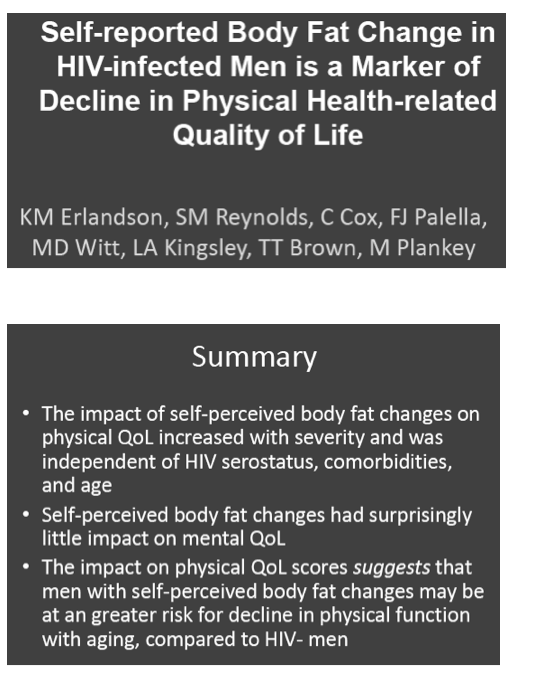
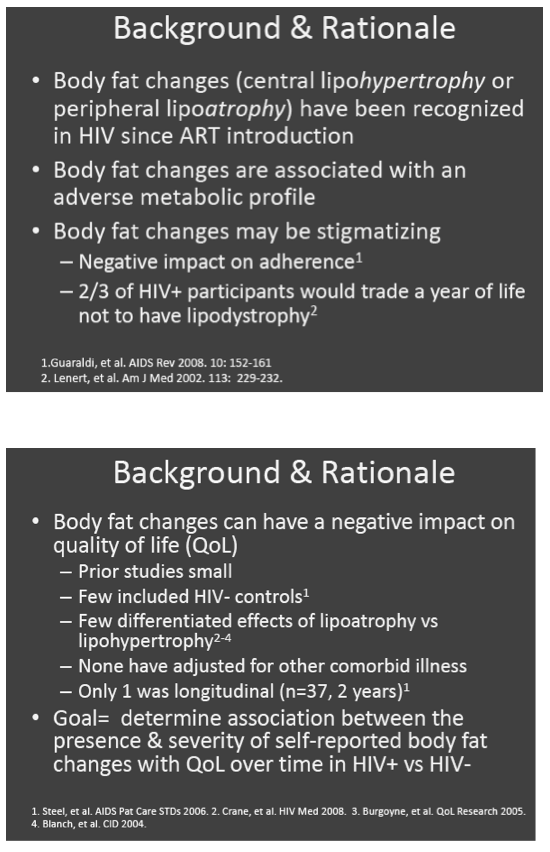
Program abstract:
Self-reported body fat change in HIV-infected men is a marker of decline in physical health related quality of life with aging, independent of co-morbidity
KM Erlandson1, SM Reynolds2, C Cox2, FJ Palella3, MD Witt4, LA Kingsley5, TT Brown2, M Plankey6
1University of Colorado, Aurora, CO, USA; 2Johns Hopkins University, Baltimore, MD, USA; 3Northwestern University, Chicago, IL, USA; 4Los Angeles Biomedical Research Institute at Harbor-UCLA, Torrance, CA, USA; 5University of Pittsburgh, Pittsburgh, PA, USA; 6Georgetown University, Washington, DC, USA
Objectives: Self-perception of body fat changes among HIV+ persons is associated with decreased health -related quality of life (HR-QoL) in cross-sectional studies. The longitudinal impact of these self-perceptions on HR-QoL, while accounting for comorbidity and location/severity of body fat changes, is unknown.
Methods: This was a longitudinal analysis of HIV+ and HIV- Multicenter AIDS Cohort Study (MACS) participants who completed a questionnaire of self-perceived body fat changes and the HR-QoL (Short Form [SF]- 36) at baseline and a median of 7.5 years later. The relationships between self-perception of body fat changes and change in SF-36 Physical (PCS) and mental (MCS) component summary scores were investigated using mixed-model regression.
Results: 270 HIV+ and 247 HIV- men were included. At baseline, PCS scores were lower among HIV+ men with moderate or severe leg or abdominal fat changes compared to those with no fat changes (P<0.05). Lower PCS at follow-up was associated with HIV+ serostatus, increasing age and time of follow-up, increasing severity of body fat changes and more comorbidities (Table 1). Severity of body fat change was not associated with baseline or change in MCS, with the exception of lower MCS in persons with mild facial changes. Higher MCS was associated with fewer co-morbidities, greater age and time.
Conclusions: Self-perceived body fat changes were strongly associated with declines in physical but not mental HR-QoL, independent of the effects of age, time and co-morbidities. Among HIV+ men, self perceived body fat changes may be a marker of an increased risk for physical function decline with aging.
Interventions to preserve physical function with aging could be informed by investigating the interrelationship of lipodystrophy, self-perception of these body fat changes and physical function.
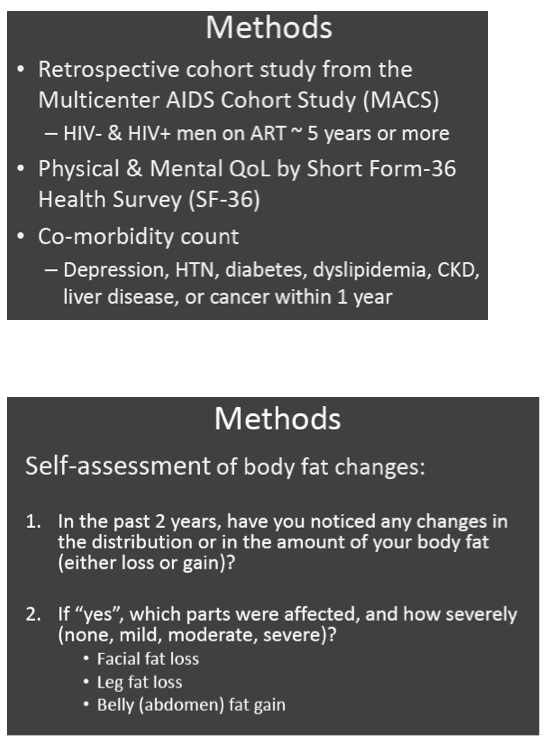
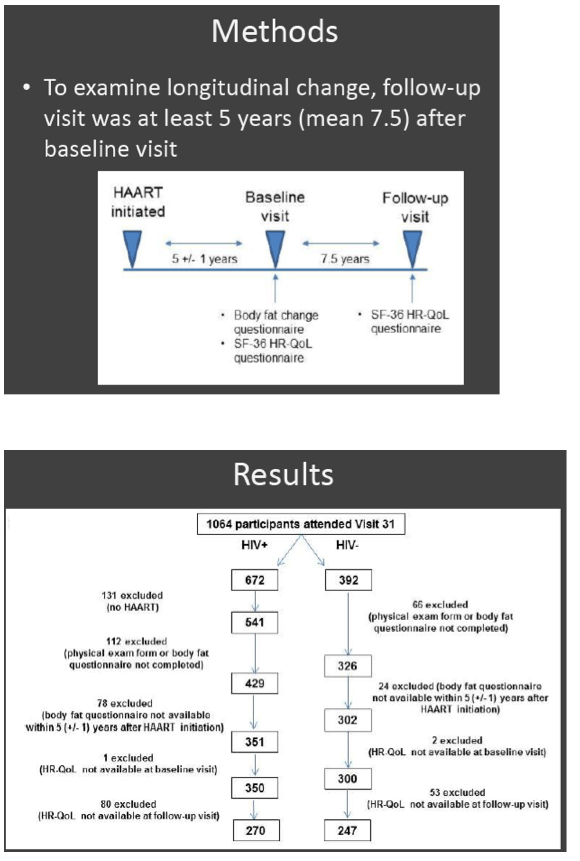
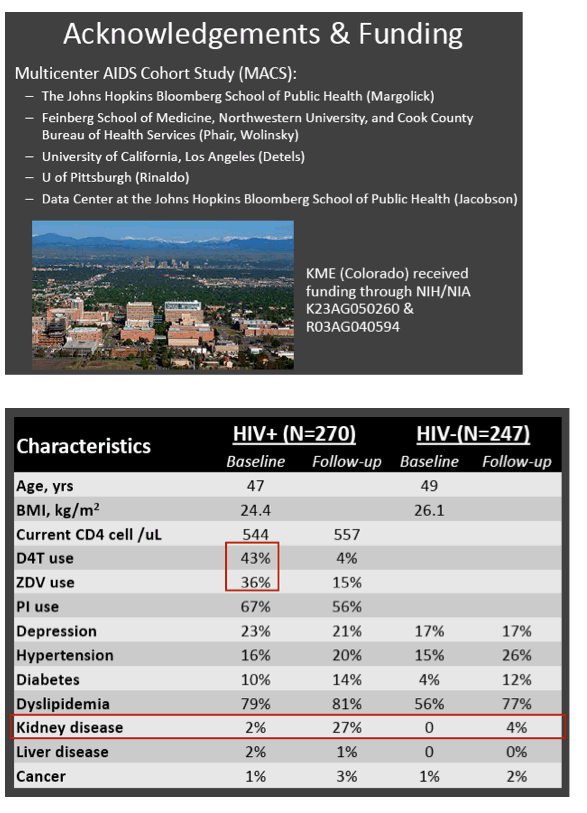
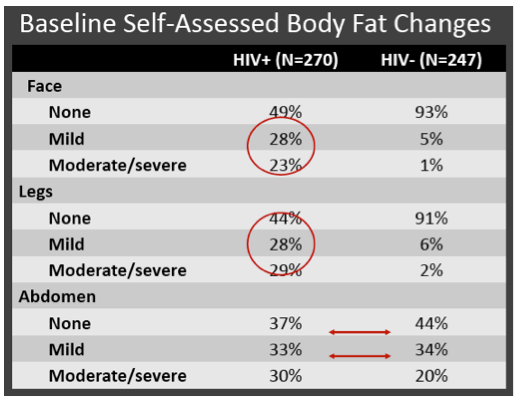
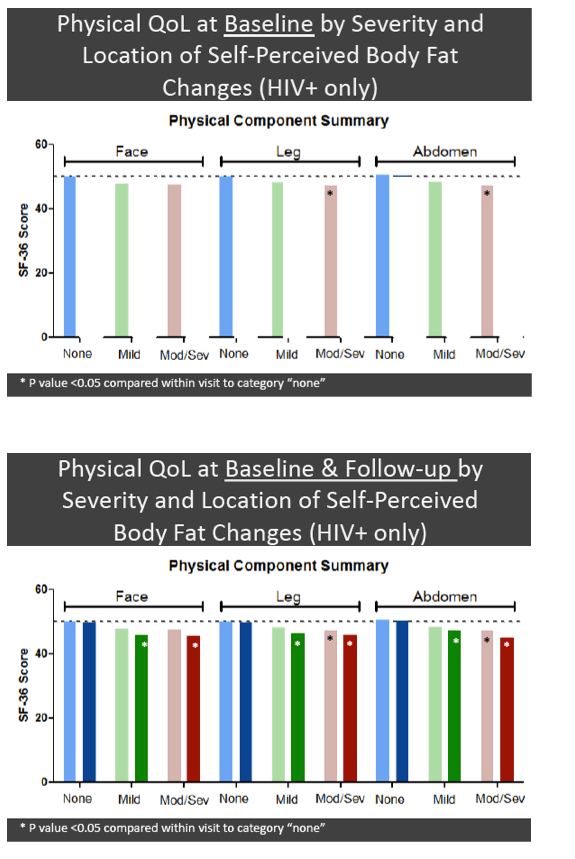
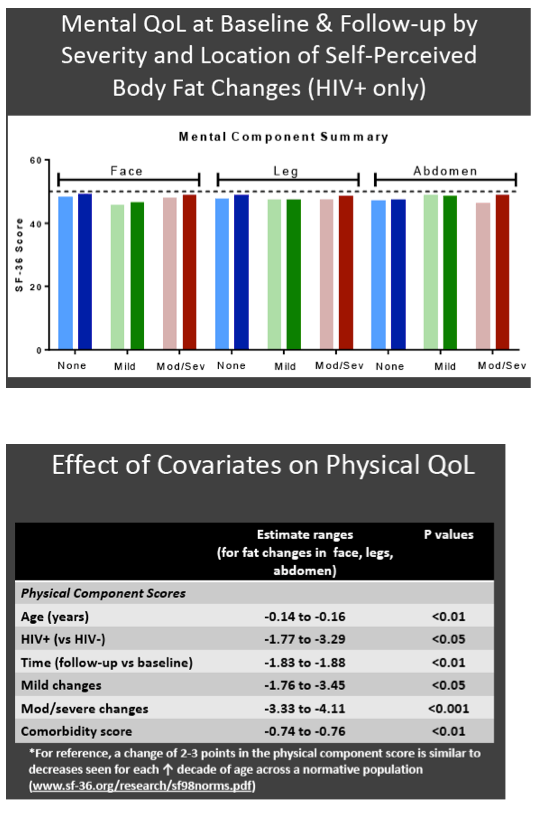
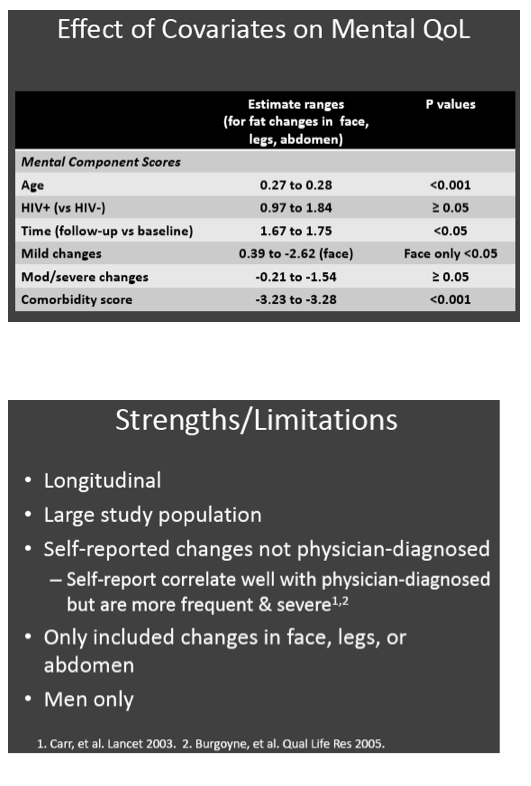
|
| |
|
 |
 |
|
|